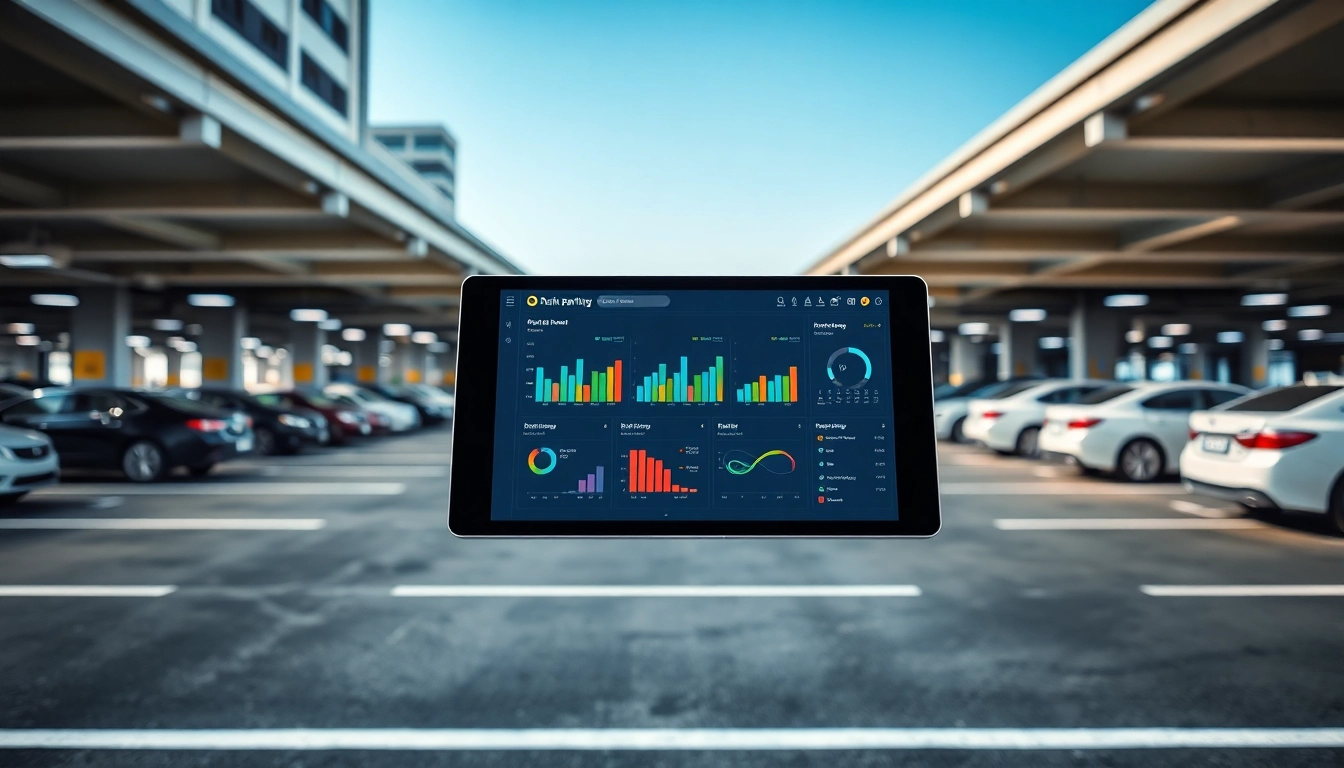Understanding AI Marketing Tools
In an era where technology continually reshapes how businesses operate, AI marketing tools have emerged as essential assets for companies looking to streamline operations and enhance customer engagement. From predictive analytics to content creation, these tools harness the power of artificial intelligence to improve marketing effectiveness. As businesses pivot to digital-first strategies, an understanding of AI marketing tools becomes critical for staying competitive.
What Are AI Marketing Tools?
AI marketing tools refer to software solutions that utilize artificial intelligence algorithms to automate and optimize marketing processes. These tools can analyze large datasets, predict consumer behavior, segment markets, personalize content delivery, and improve customer interactions. They also enable marketers to efficiently manage campaigns and track performance metrics in real time, transforming vast amounts of data into actionable insights.
Benefits of Using AI in Marketing
The benefits of deploying AI in marketing strategies are manifold. Here are some key advantages:
- Enhanced Efficiency: Automated processes reduce the time spent on manual tasks, allowing marketing teams to focus on strategic initiatives.
- Improved Customer Insights: AI tools can analyze customer behaviors and preferences at scale, providing deeper insights for targeted marketing efforts.
- Personalization: AI enables highly personalized marketing experiences by delivering tailored content based on user data.
- Predictive Analytics: AI tools can forecast trends and consumer behavior, allowing companies to proactively adjust their marketing strategies.
- Cost Savings: By streamlining processes and maximizing ROI on marketing efforts, AI tools can lead to significant savings over time.
How AI Tools Improve Workflow Efficiency
AI marketing tools excel at optimizing workflow efficiency by minimizing manual intervention. Here’s how they achieve this:
- Automation of Repetitive Tasks: Tasks such as email marketing, social media posting, and reporting can be automated, freeing marketers to focus on creative and strategic activities.
- Data Integration: AI tools can consolidate data from various sources, providing a single view of customer engagements and campaign performance.
- Real-time Performance Tracking: Marketers can monitor campaigns in real-time, enabling quick adjustments based on performance metrics.
- Collaboration and Communication: Many AI tools come equipped with features that enhance team collaboration, allowing seamless communication across departments.
Key Features of Effective AI Marketing Tools
Data Analysis Capabilities
Advanced data analysis is a cornerstone feature of AI marketing tools. They can process and analyze extensive datasets to uncover trends and patterns that inform marketing strategies. Features like sentiment analysis, customer segmentation, and predictive modeling allow marketers to understand their audience better and tailor their messaging accordingly.
Customized Customer Experiences
Utilizing machine learning algorithms, AI tools can offer personalized content and recommendations to customers. This customization can significantly enhance user engagement and satisfaction, increasing the likelihood of conversion. For instance, retail brands use AI to recommend products based on past purchases, while content platforms provide tailored reading lists based on user preferences.
Integration with Existing Platforms
Effective AI marketing tools seamlessly integrate with existing marketing platforms and systems, facilitating a smooth transition and data flow. Integrated systems enable marketers to benefit from a wide range of functionalities right within their established workflows, reducing the learning curve and time required for implementation.
Top AI Marketing Tools to Explore
Overview of Popular Tools
There is a plethora of AI marketing tools available today, each tailored for specific functions. Here, we explore some of the most popular ones:
- HubSpot: An all-in-one marketing software that combines CRM, email marketing, and content management with integrated AI capabilities for personalized customer interactions.
- Jasper: A content creation tool that uses AI to assist marketers in producing high-quality written content quickly.
- Buffer: This social media management tool leverages AI to tailor posts for different platforms, analyzing engagement metrics to optimize performance.
- Salesforce Einstein: Provides AI-driven predictions and recommendations to enhance customer relationship management.
- Canva: While primarily a design tool, its AI features simplify the creative process, helping marketers design compelling visuals without extensive graphic design skills.
Comparative Analysis of Features
When selecting AI marketing tools, it’s essential to compare the features they offer. Considerations include:
- Ease of Use: The user interface should be intuitive and user-friendly to minimize training time.
- Scalability: The tool should be able to grow with your business, accommodating increasing data volumes and user numbers.
- Support and Training: Quality customer support and available training resources can significantly enhance user adoption rates.
- Return on Investment: Evaluating the cost of the tool against the potential benefits is critical for justifying your investment.
User Reviews and Case Studies
To understand the effectiveness of various AI marketing tools, reviewing user feedback and case studies offers valuable insights. Businesses of all sizes share experiences demonstrating how specific tools improved their marketing outcomes. For instance, a case study on HubSpot revealed that a notable increase in lead generation was achieved when a mid-sized company integrated automation tools into its marketing strategy, resulting in a 30% reduction in the time spent on manual data entry.
Implementing AI Marketing Tools in Your Strategy
Steps to Integrate AI in Marketing
Integrating AI marketing tools into your strategy involves several steps:
- Identify Objectives: Define what you aim to achieve with AI, such as improving customer engagement or automating reports.
- Choose the Right Tools: Research and select AI tools that align with your marketing goals and needs.
- Training and Onboarding: Train your team on the chosen tools to ensure they can maximize their capabilities.
- Launch in Phases: Start with a pilot program to test the integration before fully implementing it across all marketing efforts.
- Analyze and Optimize: Regularly review data to assess performance and optimize strategies based on insights gathered.
Common Challenges and Solutions
Implementing AI marketing tools can present challenges, but being prepared can mitigate these issues:
- Resistance to Change: Employees may be resistant to adopting new technology. Solution: Provide comprehensive training and support to facilitate the transition.
- Data Privacy Concerns: Ensure compliance with data protection regulations, establishing clear policies for data usage.
- Integration Issues: Difficulty integrating AI tools with existing systems can arise. Solution: Choose tools designed for easy integration and offer strong technical support.
Measuring Success with AI Tools
Measuring the success of your AI marketing tools is vital to understanding their impact on your business. Key performance indicators (KPIs) to track include:
- Engagement Rates: Monitor changes in engagement metrics such as click-through rates and time-on-site.
- Conversion Rates: Compare conversion rates pre-and post-implementation of AI tools to assess impact.
- Return on Investment: Analyze the overall cost savings and additional revenue generated as a result of using AI marketing tools.
Future Trends in AI Marketing Tools
Emerging Technologies and Innovations
As technology evolves, so too will AI marketing tools. Future trends may include:
- Increased Personalization: As machine learning evolves, AI will offer even more advanced personalization capabilities, tailoring experiences to individual user needs.
- Voice and Visual Search Optimization: AI tools will become adept at optimizing content for voice and visual searches, aligning with changing user behaviors.
- Ethical AI Use: As concerns about AI ethics grow, marketers will prioritize transparency and ethical use of AI-driven insights and automation.
Predictions for 2026 and Beyond
By 2026, it’s likely that AI marketing tools will dominate the industry landscape. Innovations will drive smarter and more integrated solutions, expanding the capabilities of marketing teams across sectors. Expect to see enhanced collaboration between AI systems and human marketers, ensuring that creativity and strategy are never compromised.
Staying Ahead: Regularly Updating Tools
To remain competitive, businesses must regularly update their AI marketing tools. This includes adopting new features, integrating the latest technologies, and staying informed about emerging practices in AI. Continuous learning and adaptation will be key in leveraging AI to its fullest potential in marketing strategies.















Leave a Reply